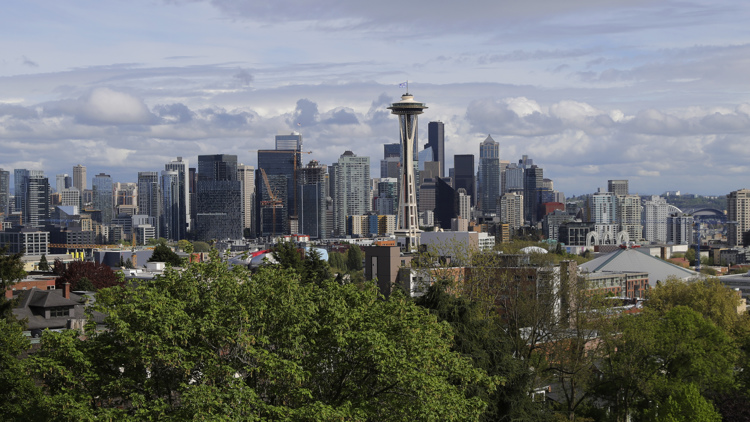SEATTLE — The City of Seattle will receive millions in federal funds to implement its building emissions policy passed last year, as part of its goal to reach net zero emission by 2050.
On Tuesday, the U.S. Department of Energy announced 19 state and local governments that will receive over $240 million to adopt and implement energy-efficient building codes.
The City of Seattle will receive $17.2 million of the funds and Washington state will receive $7.7 million.
The grant funding is provided by President Biden's Inflation Reduction Act and Bipartisan Infrastructure Law.
The funding will help implement the first-of-its-kind legislation, which Seattle Mayor Bruce Harrell signed in December 2023, that targets emissions from existing buildings. According to the city council, existing buildings account for 37% of the city’s total core emissions.
The city council estimated the legislation would reduce emissions from existing buildings by 27% and reduce the city’s total core emissions by 10%.
The legislation enacts the Building Performance Emissions Performance Standard (BEPS) to oversee setting emission targets and monitor timelines. BEPS will require owners of buildings larger than 20,000 square feet to take steps to reduce their buildings’ emissions. The city council said the standards are performance-based allowing the building owners to choose what investments to make as long as they are meeting the reduction targets.
The Seattle's Office of Sustainability & Environment estimates that approximately 4,135 buildings on 3,580 properties will be impacted.
Some changes building owners will need to make include:
- Improving operations and maintenance, like aligning heating and cooling schedules with building occupancy
- Installing modern building controls for heating and cooling to sync energy use
- Improving energy-efficient systems, like efficient fans and pumps, water fixtures and ventilation
- Adding insulation, sealing air leaks and investing in new windows to reduce heat loss and reduce drafts
- Replacing conventional natural gas use with renewable natural gas
The city’s ultimate goal is to reach net zero emissions by 2050, which was adopted in a 2011 resolution, and is in line with the United Nations’ 2050 goal, as called for in the Paris Agreement.



